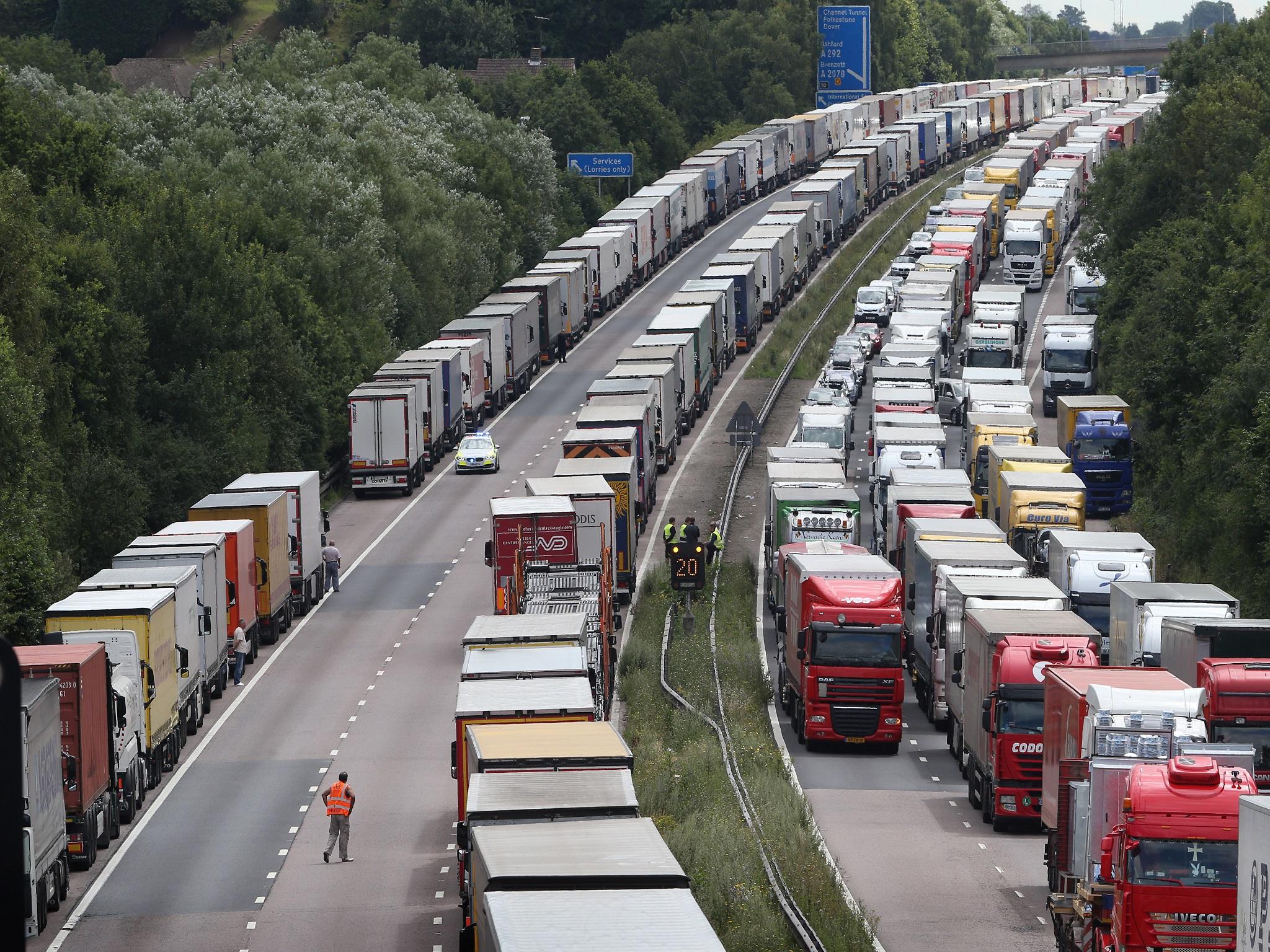The Independent's journalism is supported by our readers. When you purchase through links on our site, we may earn commission.
'No deal' Brexit: A political mess, a legal morass and an economic disaster
Experts say a failure to reach a deal in 2019 would result in customs chaos, tariffs on exports, UK nuclear plants unable to operate and British airlines unable to fly to Europe

A “no deal” Brexit would be “a political mess, a legal morass and an economic disaster”, leading UK academics have warned.
In a new report the non-partisan UK in a Changing Europe group sets out in detail its predictions of the chaos resulting from Britain crashing out of the EU in 2019 without a deal on trade, customs or a transition agreement to remain in the single market – an outcome ministers have previously admitted is a possibility and some are reportedly even pushing for.
The negative ramifications potentially include:
- Chaos at UK customs due to new checks
- Tariffs on exports
- UK nuclear plants unable to operate
- British airlines unable to fly to Europe
- UK-developed drugs denied approval for sale in Europe
- Legal limbo for British citizens abroad and EU citizens in the UK
- Economic crisis in Northern Ireland
“Our findings show a chaotic Brexit would, at least in the short term, spawn a political mess, a legal morass and an economic disaster,” said Professor Anand Menon, director the group, which comprises non-partisan legal, economic and political experts.
“This report makes it clear ‘no deal’ is an outcome the British government must strive to avoid.”
On the economic front, the analysts point to the likelihood of a further plunge in the value of sterling – on top the 13 per cent dip since last June’s Brexit vote – which would push up domestic inflation and put a fresh squeeze on real wages.
Business confidence would be dealt a major blow, resulting in cancellation of domestic investment programmes.
The authors admit that the immediate economic damage from the referendum result on 23 June 2016 was not as bad as many analysts had feared and might be seen as “crying wolf”.
But they also warn “remember, the wolf does eat the boy in the end” and point to Treasury pre-referendum estimates that the short-term economic impact of a “no deal” Brexit could be between 3.6 per cent of 6 per cent of GDP.
Theresa May says she wants a comprehensive free trade deal for the UK and the Chancellor Philip Hammond has proposed a post-2019 transition deal in which Britain would remain within the single market and a customs union.
But the Conservative manifesto states that “no deal would be better than a bad deal” for the UK.
The Foreign Secretary, Boris Johnson, has described a “no deal” outcome as “perfectly OK”.
And the Brexit Secretary, David Davis, has said that a deal by 2019 is “not certain” and his department had done no study of the economic implications of such an outcome.
The London Evening Standard reported this week that Michael Gove and Boris Johnson are using the row over Britain's divorce payment to the EU to bring talks "crashing to a halt" and engineer a "hard Brexit" with no "transitional deal".
Trade experts say there is zero chance the UK will be able to hammer out a “comprehensive” trade deal with the rest of the EU in time for 2019, meaning that to avoid a cliff-edge a transition agreement would be necessary.
But such a transition would be almost certain to include continued payments by the UK into the EU budget and also continued freedom of movement of labour for EU migrants into Britain – all of which would be difficult for the Conservatives to sell to the British people given the tenor of the Brexit campaign, which promised “taking control” of UK money and borders.
The document says that if the UK crashes out of the EU in 2019 the result will be “legal chaos”, not least in relation to the rights of EU migrants living in the UK, and predicts “years of litigation ... to sort out the answers to some highly technical and often abstruse legal issues”.
There would be tariffs and customs checks at EU borders, with the UK suddenly treated as a “third country” by the EU.
Other experts say this would result in massive lorry tail backs since the existing port infrastructure would be unable to cope, resulting in shortages.
There would be such a hard border between the North and South of Ireland, with customs checks, inflicting severe damage on the deeply integrated agricultural sector on the island.
On aviation, UK airlines would instantly lose the freedom to operate services between other EU member states. We would no longer be a member of the European Medicines Agency, potentially stopping many drugs exports to the EU.
A “no deal” Brexit would also mean the UK would end our membership of Euratom, which safeguards nuclear power plant safety procedures. This could lead to plants being closed.
Subscribe to Independent Premium to bookmark this article
Want to bookmark your favourite articles and stories to read or reference later? Start your Independent Premium subscription today.

Join our commenting forum
Join thought-provoking conversations, follow other Independent readers and see their replies